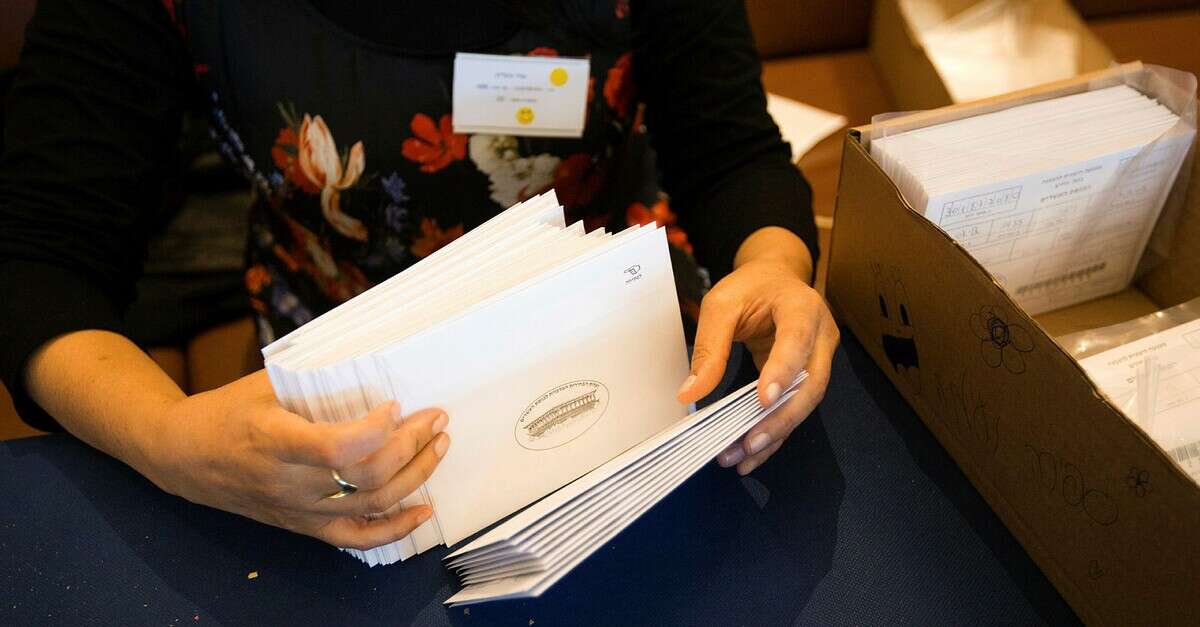
In the Knesset, the counting of the double envelopes (about 450,000 votes) will begin tonight (Wednesday). Voters included in this quorum: IDF soldiers in regular service, reserve and permanent, police and border guards, guards, prisoners and detainees, Israeli diplomatic representatives abroad, people with disabilities, hospitalized, verified in Corona and isolated, as well as Israelis who returned from abroad on The elections and voted at Ben Gurion Airport.
Early estimates were that about 600,000 people would vote in double envelopes, but in light of the fact that far fewer verified and isolated patients voted on the “vote and go” sites, the number of actual voters dropped to about 450,000.
A tour of the logistics warehouse of the Election Commission // Photo: Yoni Rickner
Once the testing process is complete, the votes are counted as in any regular ballot box. 1,000 staff of the Electoral Commission check the results of the vote, and this process is done under the supervision of election supervisors and under the supervision of party representatives. The Yesh Atid faction has announced that it has appointed four MKs on its behalf (Orna Barbibai, Meir Cohen, Miki Levy and Meirav Cohen) who will monitor the vote count to prevent forgeries and mishaps.

Election Commission CEO Adv. Orly Adas estimated that the counting of all the votes in the double envelopes would end by Friday morning, at which time it would be possible to publish the final results.